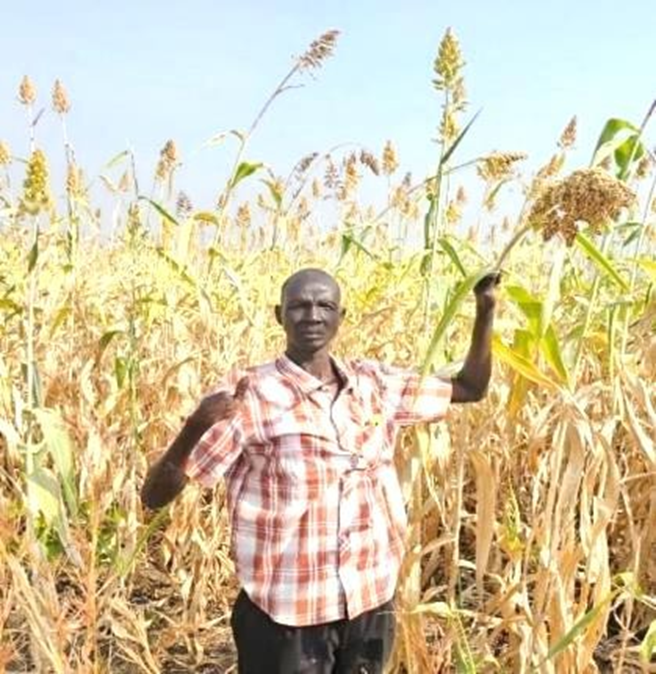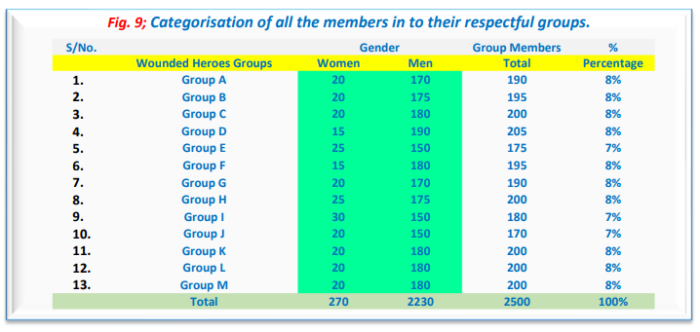An overview of the services you offer and how they will benefit the visitor.

The TAP-SS Executive Director visited the Wounded heroes farm of 160 acres at Bilnyang Payam. This is a Wounded Heroes Corporation-based Initiative (WHCI) conceived by the leaders of Wounded Heroes in November, 2023, with support from TAP-SS and IDEA-SS. The objective of forming this corporation was to strengthen the 2,500 registered members of the groups under the three Payams of Pakeer, Ajuong and Nyuak of Twic East County in Jonglei State. The aim was to help the vulnerable wounded heroes to participate in Agricultural activities, especially, dura, maize, groundnut, and vegetable productions. This will also enable the challenge of food-security which has dreadfully affected South Sudanese communities. Due to the serious flooding in Jonglei State in 2023, the group’s activities were moved to Mangala Payam. They were hosted by Bilnyang Executive Chief who gave 200 acres to cultivate. In MayAugust 2024, the groups managed to cultivate 160 acres of land. Unfortunately, they didn’t meet their set objectives due to lack of tools for cultivation and weeding. Therefore, if FAO helps them with the desired tools and seeds, they’ll be able to reach their target in this year’s cultivation.



TAP-SS conducted a group discussion with cattle camp leaders in Janaloka cattle camp. The objective for the discussion was to promote peaceful co-existence among the herders and the local farmers. The cattle camp leaders agreed to abide to the below principles:
How does TAP-SS advance its interventions?
TAP-SS uses Community Mobilisation and Awareness: This approach is achieved through conducting public rallies/campaigns, public lectures, Beneficiaries presentations on television, conducting radio talk shows, presentations in churches and on social media outlets such as Websites, Facebook, Instagram, X and WhatsApp groups.
Conducting trainings: Once the farmers or Saving & Loan Associations are identified, the members receive training before the beginning of activities in order to equip them with knowledge which can grant success and help mitigate and solve unforeseen problems or challenges. The trainings are organised by TAP-SS in collaboration with institutions of higher learning – Juba University and concerned ministries and private sectors.
TAP-SS Promotes the use of advanced Technology for information dissemination: The biggest part of TAP-SS Executive Director’s previous work with ACROSS was Media production which included distributions of Digital Audio Players (DAPs) loaded with developmental and educational teachings. TAP-SS will incorporate the same approach to its programming in collaboration with ACROSS Media department and other partnering agencies. Training will include Agri-production, Agro-business, Peacebuilding, civic education, and other beneficial teachings will be disseminated to the farmers groups and community leaders via Digital Audio Players
(DAPs).
A community dialogue Between Akot county and Aluak-luak Payam under Yirol-west county, disability caused by armed youth has hindered social economic activities such as crossboundary trade, local faming, social dancing, and the movement of people. Cattle raiding and killing of both residents and travellers was rampant among these two neighbouring communities. Chol Bol Ajak, the Executive Director initiated dialogue among the leaders of the two communities who reached an agreement to co-exist among themselves. Trade and free movement of the residents was agreed. Cattle raiding was condemned, and measures were put in place to prevent cattle rustling and the rules that govern blood compensation were agreed.
